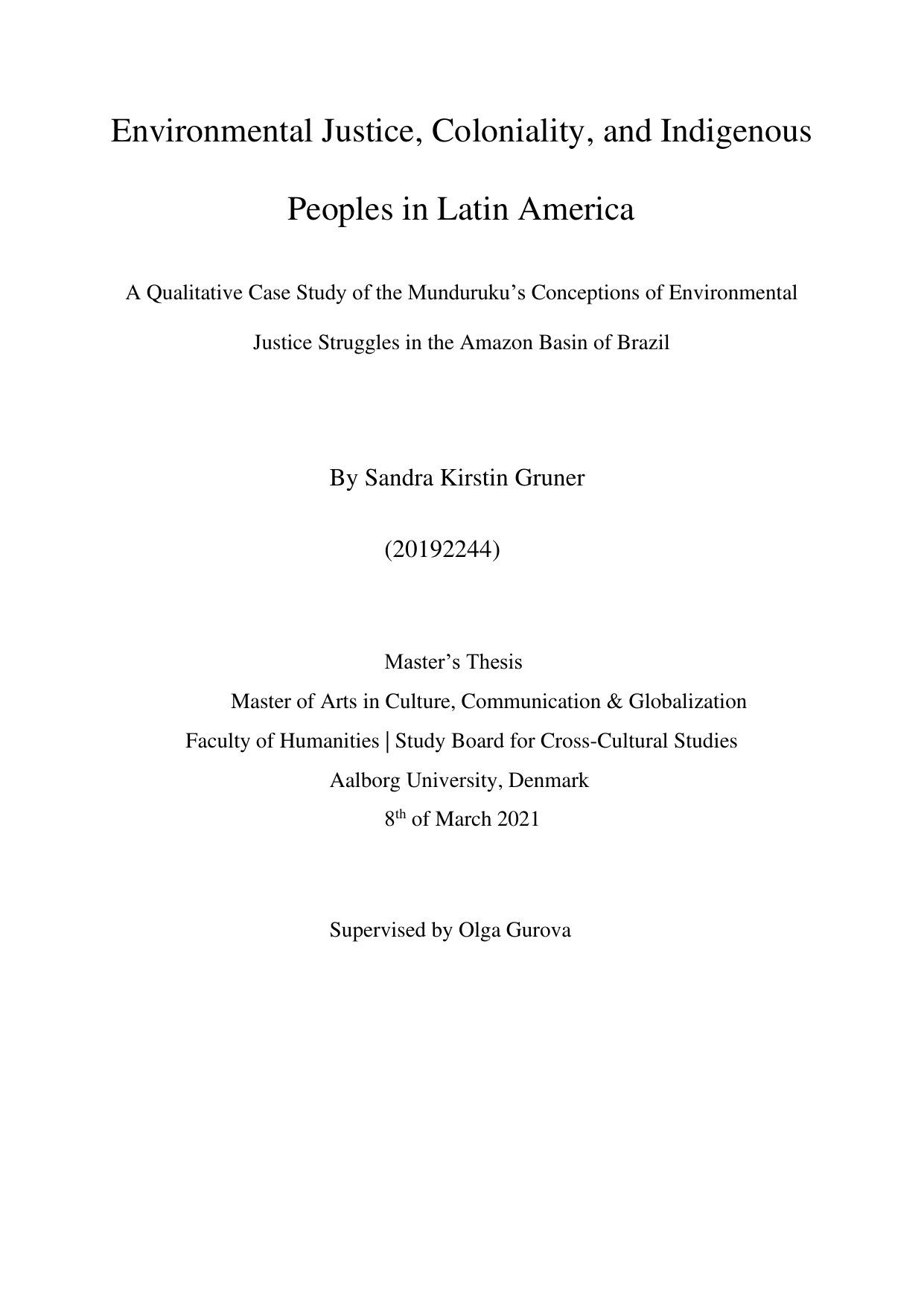
Environmental Justice, Coloniality, and Indigenous Peoples in Latin America: A Qualitative Case Study of the Munduruku's Conceptions of Environmental Justice Struggles in the Amazon Basin of Brazil
Translated title
Author
Term
4. term
Publication year
2021
Submitted on
2021-03-08
Pages
74
Abstract
This research is a qualitative case study of the Munduruku who live in the Amazon basin of Brazil. The Munduruku as indigenous people are facing environmental and social injustices such as the neglect of territorial, civic, and participatory rights, and struggles with respect and recognition because of the current threat of development plans in the region. This research aims to contribute to the growing body of environmental justice literature by utilising the theoretical framework of Environmental Justice by Schlosberg in combination with concepts of coloniality of power, knowledge, being, and justice. The theoretical framework of Environmental Justice is critically reflected upon in the context of indigenous environmental justice struggles and possible conceptual advancements explored. A special focus hereby lies in knowledge production of indigenous communities and the recognition of belief systems as well as in the inclusion of ecological justice or more-than-human-approaches. The case study is based on documents, interviews, and speeches given and created by the Munduruku and analysed through thematic analysis by Braun and Clarke. The underlying question was how the Munduruku understand and conceptualise the ‘environment’ and ‘justice’ in the context of Environmental Justice. The final themes were: 1. ‘Environment’ with the sub themes of ‘generational connection’, ‘cultural, spiritual, and physical dimensions of land’, and ‘ontologies’ 2. ‘Justice’ with ‘rights’, ‘participation’, and ‘recognition’ as sub themes 3. ‘Knowledge and education’. The research concludes that while the framework of Environmental Justice is overall useful it needs to be adapted to the case of the Munduruku and indigenous peoples in general. Historical, political, economic, social, and cultural power structures resulting in dimensions of coloniality need to be included. This especially refers to the coloniality of knowledge, and the inclusion and recognition of indigenous epistemologies and ontologies both in academic concepts and in the real-world cases at hand. Furthermore, especially in indigenous environmental justice struggles, but generally for the whole framework of Environmental Justice, is the exploration of human-non-human-relationships necessary in order to understand conceptions of the environment.
Keywords
Documents
